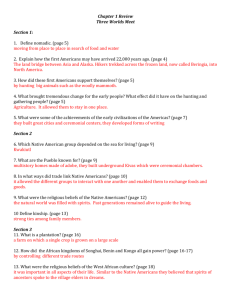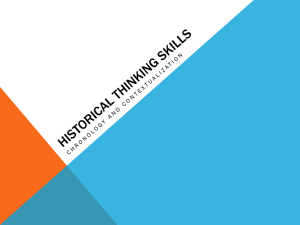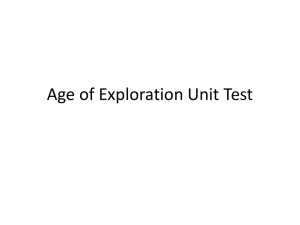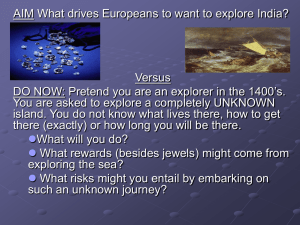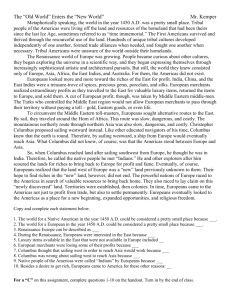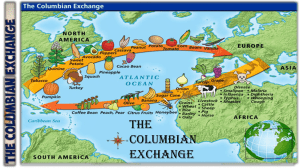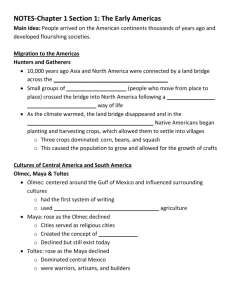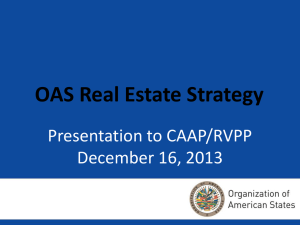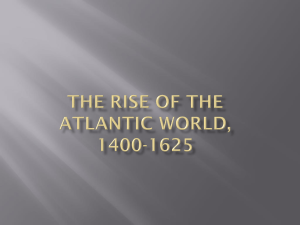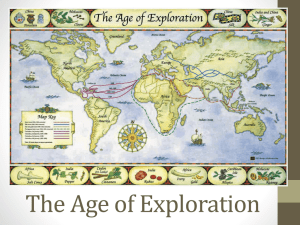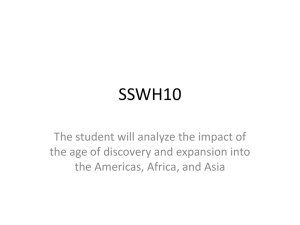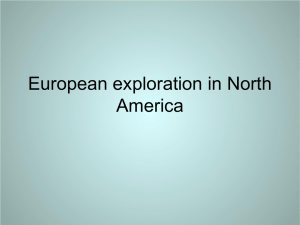chapter 1 - Crestwood Local Schools
advertisement
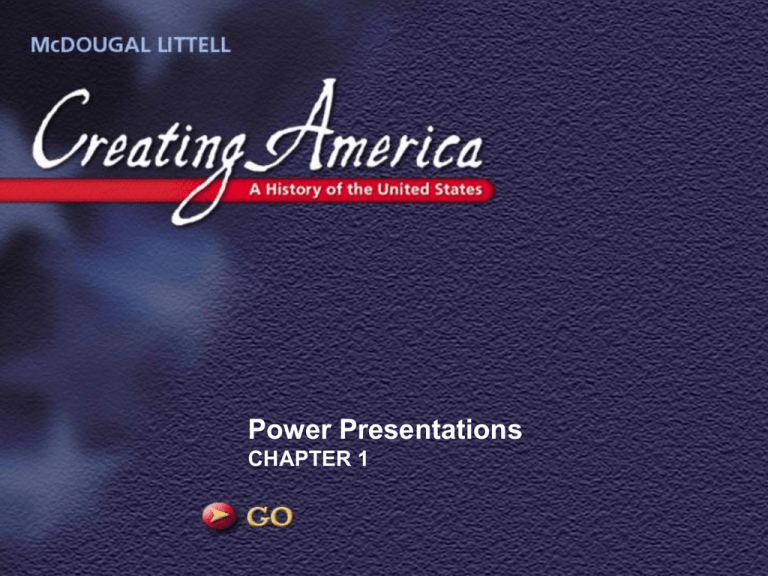
Power Presentations CHAPTER 1 Diversity and Unity Image The year is 1492, and you live on an island in the Caribbean. One day you see a giant boat topped by strange white cloths. Men climb into smaller boats and row toward you. You have never seen men like this. They have pale skin and wear heavy, colorful clothing. You wonder what will happen when they land. What happens when different societies meet? • What can different societies learn from each other? • What might they want to gain from each other? • What positive and negative things might happen when they meet? 200s The Maya are using hieroglyphic writing. 800s Maize is widely grown in what is now the southeastern United States. 1100s The city of Cahokia flourishes in what is now Illinois. 1200s The Aztecs conquer much of central Mexico. To World 1492 The European explorer Columbus lands in the Americas. Image About 6 B.C. Jesus of Nazareth is born. His teachings become the basis for Christianity. 476 Western Roman Empire ends. Over time, Europe splits into small kingdoms. Early 600s Muhammad begins the religion of Islam in Arabia. 1096 Europeans begin the Crusades to capture the Holy Land from followers of Islam. 1324 Mansa Musa, emperor of Mali, travels to Islam's holy city. Word of his gold spreads to Europe. Back to Americas 1481 Portuguese traders begin to build a fort near Benin in Africa. Back to Home Main Idea Ancient peoples came from Asia to the Americas and over time established many diverse Native American societies. Why It Matters Now Some Americans today claim one or more of these cultures as part of their heritage. What are the ancient cultures of Mesoamerica and North America, and where were these cultures located? Map ANCIENT CULTURE LOCATION Olmec Mesoamerica Maya Mexico and Guatemala Hohokam Arizona Anasazi where Utah, Arizona, Colorado, and New Mexico meet Hopewell eastern United States Mississippians eastern United States • How did the development of farming lead to the growth of civilization? • How were the Pueblo like their ancestors, the Hohokam and Anasazi? • How did the formation of the Iroquois League benefit its member nations? Comparing How did tribes such as the Hohokam and the Iroquois adapt to living in their environment? Think About • Hohokam agriculture • Iroquois farming Back to Home Main Idea Map By 1500, the peoples of West Africa and Europe developed sophisticated civilizations. Why It Matters Now The changes taking place in West Africa and Europe helped shape European exploration of the Americas. How has the Renaissance changed art and learning? increased study of history, philosophy, literature study of humanism Renaissance printing press, which spread learning more realism in art rediscovery of classical science and exposure to algebra • How did Ghana’s ruler benefit from controlling the gold-salt trade? • How did Islam spread within West Africa? • What caused feudalism to develop? Contrasting How did the Renaissance differ from the European Middle Ages? Image Think About • the economy • how power was distributed • the authority of the church Back to Home Main Idea Map As Europeans searched for sea routes to Asia, Christopher Columbus reached the Americas. Why It Matters Now Columbus’s journey permanently linked the Americas to the rest of the world. What were the effects of Columbus’s voyages? Which were positive and which were negative? COLUMBUS’S VOYAGES Conflict with Taino Enslavement and death of Taino Failure to bring back treasures Europeans realized Americas were a previously unknown land Spanish colonization Further European explorations • Why was Prince Henry eager to find an all-water route to Asia? • Why did Spain's king and queen decide to support Columbus's first voyage? • Why was Columbus disappointed by the outcome of his four voyages to the Americas? Analyzing Points of View Explain how people might have viewed Columbus's first voyage. Give reasons for their points of view. Think About • Columbus • Queen Isabella • a Taino chief Back to Home REVIEW QUESTIONS ANSWERS: READ AND TAKE NOTES 1 What are two theories about migration to the Americas? 2 For what purposes did the Mound Builders construct earthen mounds? 3 What enabled the Aztecs to build a strong empire? 4 How did the Iroquois League come about? 5 What enabled Ghana, Mali, and Songhai all to grow rich? 6 Did Islam become more or less influential in West Africa from the 700s to the 1400s? Explain. 7 How did the manor system work during the Middle Ages? 8 How did the Crusades increase European interest in trade? 9 Why did non-Italian Europeans seek new trade routes to Asia? 10 How did Columbus miscalculate the distance to Asia? Sequencing Events TRADE TECHNOLOGY RELIGION ART Trade spread culture. Groups exchanged regional products. irrigation mound building seashell and bone tools sacred places sacred animals and natural forces rock paintings WEST AFRICA Gold was traded for salt. Kingdoms grew rich on trade. Yoruba cast metal sculpture traditional African religions Islam wood, ivory, and metal sculptures EUROPE Trade declined printing press during Middle Ages. caravels Crusades spurred trade. Italy controlled trade with East. Christianity split between Catholics and Protestants paintings AMERICAS Back to Home These labels let you know where you are in the presentation. When you click on the arrow you will be linked to a related visual. Map Image These buttons link you to special areas. Use these buttons to go back to the previous slide, or to move forward in the presentation. To reveal the content of a slide just press the space bar or click your mouse once. To use a button, move your pointer over the button. When your pointer becomes a hand, click your mouse. Back to Previous
